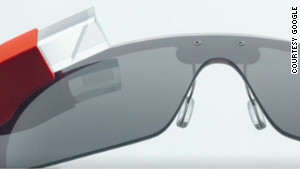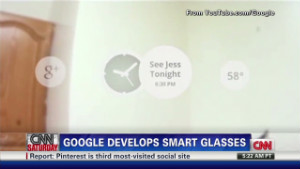(Wired) -- Google is barring anyone deemed worthy of a pair of its $1,500 Google Glass computer eyewear from selling or even loaning out the highly coveted gadget.
The company's terms of service on the limited-edition wearable computer specifically states, "you may not resell, loan, transfer, or give your device to any other person. If you resell, loan, transfer, or give your device to any other person without Google's authorization, Google reserves the right to deactivate the device, and neither you nor the unauthorized person using the device will be entitled to any refund, product support, or product warranty."
Welcome to the New World, one in which companies are retaining control of their products even after consumers purchase them.
It was bound to happen. Strange as it may sound, you don't actually own much of the software you buy today. You essentially rent it under strict end-user agreements that have withstood judicial scrutiny. Google appears to be among the first to apply such draconian rules to consumer electronics.
 Why spend $1,500 for these glasses?
Why spend $1,500 for these glasses? "If it takes off like iPhones did, this is going to be part of people's everyday activity, and now we are starting down this path that is going to be completely controlled," said Corynne McSherry, the Electronic Frontier Foundation's intellectual property coordinator. "It's not clear to me what they are doing is unlawful. It's a contract issue."
 2012: Google's augmented reality glasses
2012: Google's augmented reality glasses  2012: Google develops 'smart glasses'
2012: Google develops 'smart glasses' The company knows if the eyewear was transferred because each device is registered under the buyer's Google account.
For the moment, not just anybody can buy the eyewear.
Google has created the Silicon Valley equivalent of a velvet rope under its so-called Google Glass Explorers program. If Google liked what you posted on social media under the hashtag #ifihadglassand, Google grants you the opportunity to fork out $1,500 for the Explorer edition of the headset.
Google declined comment. Google also isn't saying when it would lift its velvet rope and whether the same Draconian terms of service would apply when it does lift the velvet rope.
Google's tight rein over the gadget came to light today when one of the first would-be owners of the device abruptly halted an eBay auction because he feared reprisals from Google.
"After getting a message on Twitter from Google saying I had been selected as part of the program a couple weeks ago, it just came to mind if they are giving out to a limited number of people, I could put it out there on eBay and sell it for a lot more than $1,500," said Ed, a Philadelphia man who halted his auction Wednesday. (Wired agreed not to publish his last name as a condition of him telling his story.)
Because the only correspondence Ed has had with Google is the initial tweet about his acceptance into the program, he had no idea he wasn't allowed to sell his Google Glass, which he had been authorized to purchase for $1,500 in the coming weeks. Instead, he found out via the Glass Explorers Google+ group.
He also discovered that some were upset that he had the audacity to sell his Google Glass headset.
"People were acting like I had did something sacrilegious," he said.
Once Ed learned of the terms of service, he ended the auction — which began at $5,000 and ballooned to more than $90,000. No one from Google or eBay had contacted him about the auction, he said. He still wants his Google Glass Explorer headset and hopes that Google doesn't hold it against him for trying to sell the device.
"I'm willing to fork up the $1,500 for it," he said.
The tech world, including Google, won an approval-of-sorts to control its stream of commerce in 2010, when the 9th U.S. Circuit Court of Appeals said licensing language controls resales.
The case concerned a dispute about whether a California man could resell Autodesk software on eBay. Autodesk prevailed in a lawsuit, and the San Francisco-based appeals court pointed out that the shrink-wrap agreement between its customers forbade the resale of it.
The Software & Information Industry Association, whose members include Google, Adobe, McAfee, Oracle and dozens of others, urged the court to rule as it did. The Motion Picture Association of America also sided with Autodesk.
Federal regulators cited that decision last year (.pdf) when it blocked mobile-phone owners from lawfully unlocking their phones to run on a compatible carrier of choice, saying the ruling was "controlling precedent." That's because people don't own the software on their phones that controls access to carrier networks, regulators said.
For Ed, it's all a lost opportunity to cash in on being one of the first selected to buy Google Glass.
It would have been "exciting," he said, "to get $100,000 for something that only costs $1,500."
{ 0 comments... read them below or add one }
Post a Comment